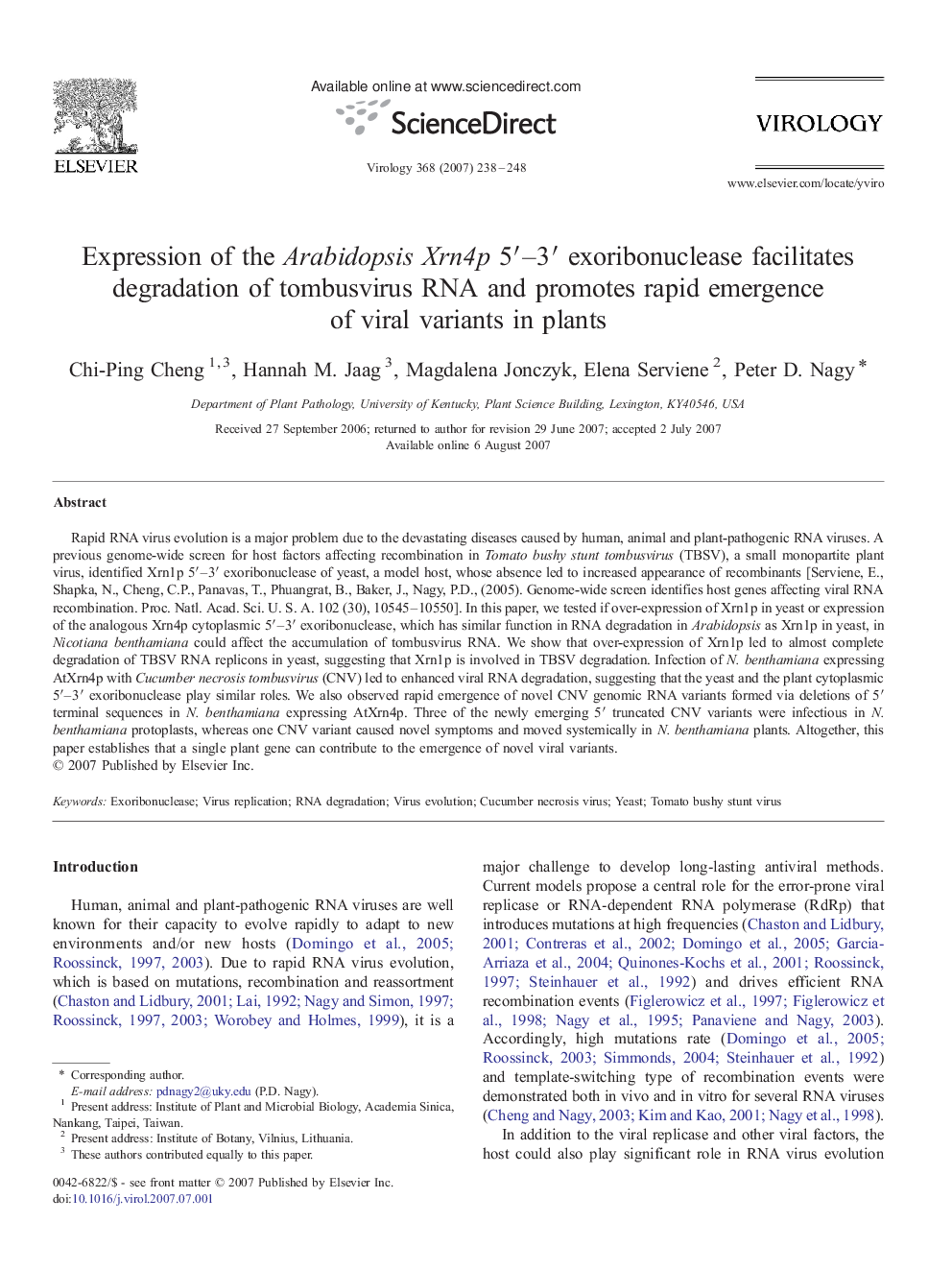| Article ID | Journal | Published Year | Pages | File Type |
|---|---|---|---|---|
| 3425894 | Virology | 2007 | 11 Pages |
Rapid RNA virus evolution is a major problem due to the devastating diseases caused by human, animal and plant-pathogenic RNA viruses. A previous genome-wide screen for host factors affecting recombination in Tomato bushy stunt tombusvirus (TBSV), a small monopartite plant virus, identified Xrn1p 5′–3′ exoribonuclease of yeast, a model host, whose absence led to increased appearance of recombinants [Serviene, E., Shapka, N., Cheng, C.P., Panavas, T., Phuangrat, B., Baker, J., Nagy, P.D., (2005). Genome-wide screen identifies host genes affecting viral RNA recombination. Proc. Natl. Acad. Sci. U. S. A. 102 (30), 10545–10550]. In this paper, we tested if over-expression of Xrn1p in yeast or expression of the analogous Xrn4p cytoplasmic 5′–3′ exoribonuclease, which has similar function in RNA degradation in Arabidopsis as Xrn1p in yeast, in Nicotiana benthamiana could affect the accumulation of tombusvirus RNA. We show that over-expression of Xrn1p led to almost complete degradation of TBSV RNA replicons in yeast, suggesting that Xrn1p is involved in TBSV degradation. Infection of N. benthamiana expressing AtXrn4p with Cucumber necrosis tombusvirus (CNV) led to enhanced viral RNA degradation, suggesting that the yeast and the plant cytoplasmic 5′–3′ exoribonuclease play similar roles. We also observed rapid emergence of novel CNV genomic RNA variants formed via deletions of 5′ terminal sequences in N. benthamiana expressing AtXrn4p. Three of the newly emerging 5′ truncated CNV variants were infectious in N. benthamiana protoplasts, whereas one CNV variant caused novel symptoms and moved systemically in N. benthamiana plants. Altogether, this paper establishes that a single plant gene can contribute to the emergence of novel viral variants.
